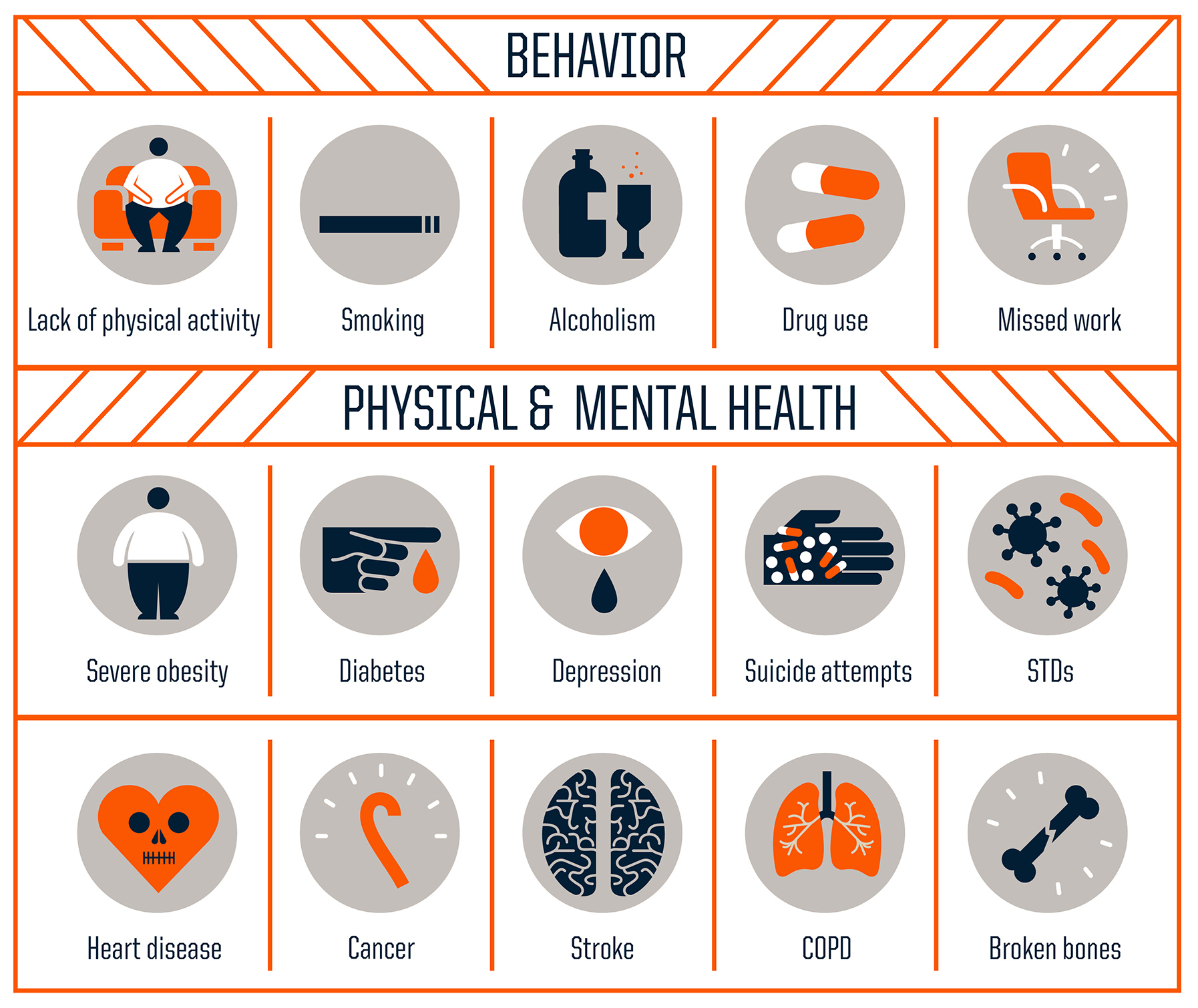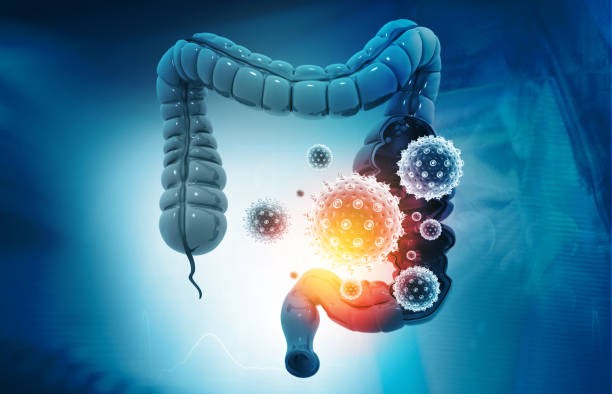Adverse Childhood Experiences (ACEs) are potentially traumatic events that occur during childhood, such as abuse, neglect, or growing up in a chaotic home, that can have profound, long-lasting impacts on our health and well-being as adults.
While childhood trauma can often remain unspoken or forgotten, the body remembers. Unresolved trauma can keep the nervous system in a chronic state of stress, which fuels inflammation in the body. Over time, this low-grade but persistent inflammatory response can manifest as physical illness, mental health struggles, or even reduced life expectancy.
The ACE Study (Adverse Childhood Experiences Study), one of the largest public health studies ever conducted, shows us just how strong this mind-body connection really is.
Research continues to demonstrate the powerful link between stress and physical health. Consider these findings:
-
Adults caring for a spouse with dementia show increased levels of cytokines, the proteins that drive inflammation.
-
Experiencing the death of an adult sibling significantly raises one’s risk of heart attack.
-
Pregnant women facing major stress have double the risk of miscarriage.
-
A father experiencing financial strain is more likely to sustain serious physical injuries.
-
The death of a child triples a parent’s risk of developing multiple sclerosis.
-
Intense emotional fear or loss can trigger “broken heart syndrome,” a weakening of the heart muscle that mimics a heart attack.
When trauma occurs early in life—before we’ve developed coping mechanisms—its effects can be even more profound.
What Counts as an ACE?
If you experienced any of the following in childhood, you may have ACEs that are still shaping your health today:
-
Experiencing violence, abuse, or neglect
-
Witnessing domestic violence or community violence
-
Having a family member attempt or die by suicide
-
Growing up in a household with substance misuse or mental illness
-
Experiencing instability from parental separation, incarceration, or chronic stress
These early adversities undermine a child’s sense of safety, stability, and bonding, leaving the nervous system stuck in survival mode.
The Health Impacts of ACEs in Adulthood
The ACE Study uncovered striking correlations between early trauma and adult health:
-
Children with 7+ ACEs have a 360% higher chance of developing heart disease as adults.
-
More than half of women with Irritable Bowel Syndrome report a history of childhood trauma.
-
Adults with 4 ACEs are twice as likely to be diagnosed with cancer than those with none.
-
For each ACE score, the risk of hospitalization for autoimmune disease rises 20%.
-
An ACE score of 4 increases the likelihood of depression by 460%.
-
Having 6 or more ACEs shortens life expectancy by almost 20 years.
These numbers highlight a sobering truth: our biography becomes our biology.

According to U.S. research:
-
64% of people grew up with at least one ACE.
-
More than 1,500 studies worldwide have confirmed the connection between childhood trauma and long-term health.
-
The World Health Organization now uses the ACE Questionnaire in 14 countries to help identify trauma-related health risks.
-
In the United States, 29 states and Washington D.C. have adopted the ACE framework in public health initiatives.
This means the majority of us carry some form of unresolved stress or trauma from childhood—and many of us are living with its effects today.
Healing is Possible
The ACE Study is not the end of the story. While trauma imprints on the nervous system and body, healing and resilience are absolutely possible. Modalities such as Somatic Experiencing® help the body release stored trauma, regulate the nervous system, and reduce inflammation.
Here’s what one client shared about her journey:
“I am extremely grateful for the 8 Somatic Experiencing and energy therapy sessions I recently received with Jaya. I have seen a tremendous shift in my mind, body and spirit. Inflammation in my body, especially my colon, has reduced (when my Doctor recently tested my Rheumatoid Factor, it had lowered significantly). I have a sense of calm now and no longer feel that I am hypervigilant. This allows me to be able to attend and engage in social activities without anxiety. It has also helped me to be more present in each moment and feel more fully alive.
Jaya is an amazing, knowledgeable, gentle healer and has the expertise to support you wherever you are. I have learned so much about myself and appreciate each session that I have. I wish everyone to experience the wonderful transformations that I have experienced with Jaya. We are worth the investment.”
– Carol, Ottawa
We all deserve to live vibrant, thriving lives—mentally, physically, emotionally, and spiritually. The ACE Study gives us powerful insight into why so many of us struggle with chronic illness or emotional overwhelm. But it also points to a solution: by addressing unresolved trauma, we can break the cycle of stress and reclaim our health.
You are not broken. You are carrying the imprint of what you’ve been through. And with the right support, you can heal.
If you feel called to begin your journey of somatic trauma integration, I would be honored to walk alongside you. Together, we can gently unwind survival patterns, calm your nervous system, and restore the resilience and vitality you were always meant to have.





